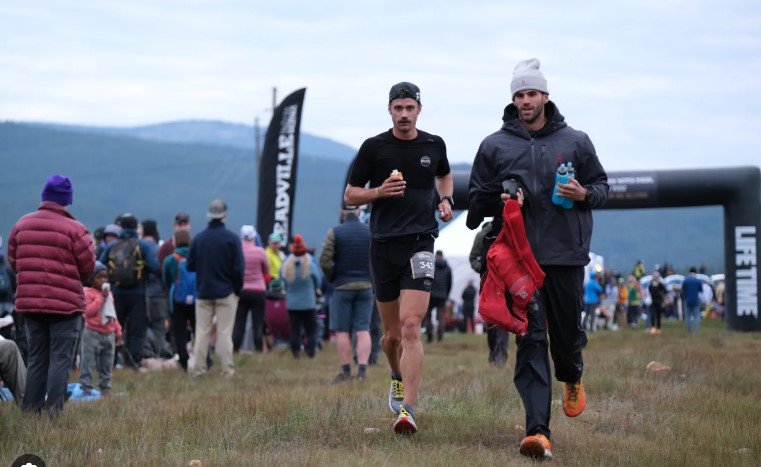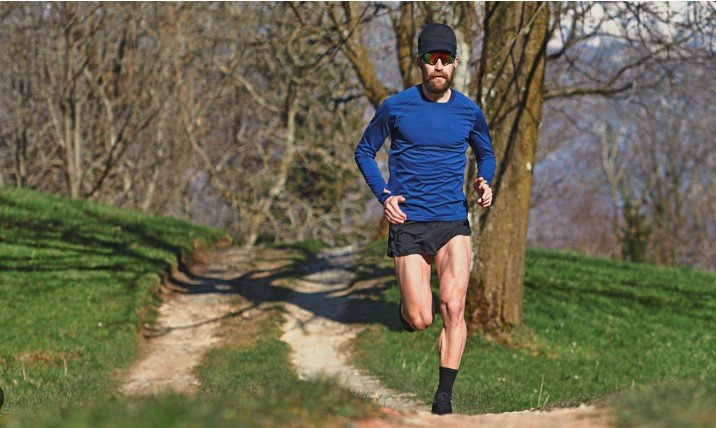Tapering is crucial before an ultramarathon. It’s the process of reducing your training volume to allow your body to recover and perform at its best. Proper tapering ensures you have peak energy on race day. Here’s how to taper effectively.

Start Early with a Structured Plan
Begin tapering about three weeks before the race. Gradually reduce your training volume over this period. The first week should see a slight reduction in mileage. In the second week, cut your weekly mileage by 40%. During the final week, reduce your mileage by 60% to 70%. This approach allows your body to rest and recharge without losing fitness.
Focus on Quality, Not Quantity
During your taper, prioritize quality over quantity. Keep a few shorter, faster runs in your routine. These should be at race pace or slightly faster. These runs help maintain sharpness without causing excessive fatigue. Avoid long, hard workouts. Focus on maintaining your fitness, not building it.
Pay Attention to Nutrition and Hydration
Proper nutrition and hydration are essential during the taper period. Your body needs fuel to repair itself and store energy for race day. Eat a balanced diet with plenty of carbohydrates, healthy fats, and proteins. Stay hydrated to ensure your muscles recover fully. Proper nutrition and hydration help optimize your performance when race day arrives.
Rest and Recover
Tapering is not just about cutting back on running. It’s also about allowing your body to rest. Get enough sleep, especially in the final week. Restful sleep is essential for muscle repair and mental preparation. Use this time to stretch, foam roll, and do light cross-training if needed. Avoid overexerting yourself. This recovery period is key to feeling fresh and strong on race day.
Stay Mentally Focused
During the taper, you may feel anxious or restless. Your training is reducing, and it’s easy to question your fitness. Stay confident in your training and focus on mental preparation. Visualize your race day success. Focus on the strategies you’ve developed during training. Keep a positive mindset and trust the process.
Reduce Mental Stress
The taper period is also a time to reduce mental stress. As your training volume decreases, you may feel anxious or question your readiness. You might worry that you’re losing fitness or not preparing enough. These thoughts are common, but they’re unnecessary. Trust in the hard work you’ve put in over the months leading up to the race. Instead of focusing on running, focus on relaxing and preparing mentally. Visualization techniques can help. Imagine yourself running confidently through the course and crossing the finish line strong. Positive mental rehearsal boosts confidence and reduces race-day anxiety.
Keep Injury Prevention in Mind
The taper period is not just about reducing mileage but also about preventing injury. With a decrease in training, you may feel tempted to overdo it in other areas. Avoid adding new exercises or pushing too hard in cross-training. Stick to familiar movements that won’t put unnecessary strain on your body. Stretching, foam rolling, and light strength work can help keep your muscles limber, but don’t push yourself too hard. The goal is to maintain your flexibility and mobility without risking any overuse injuries or strains.
Adjust Your Sleep Schedule
As race day approaches, adjusting your sleep schedule is essential. Aim for a good night’s sleep in the days leading up to the race, especially in the final week of tapering. Sleep is when your body repairs itself, so prioritize rest. If you’re nervous, try calming activities before bed, such as reading or gentle yoga. Avoid overthinking the race, as this can cause anxiety and disrupt sleep. Establish a calming pre-bedtime routine to help you relax and ensure your body is well-rested.
Conclusion
Tapering effectively before an ultramarathon is essential for optimal performance. Start tapering three weeks out, reducing mileage gradually. Focus on quality training, proper nutrition, and ample rest. Don’t forget to keep your mind sharp and positive. Follow these tips, and you’ll arrive at race day feeling fresh, rested, and ready to run your best.











